In a relief to Savukku Shankar, the Supreme Court on Wednesday stayed the coercive proceedings against the well-known YouTuber in 16 FIRs lodged by the Tamil Nadu Police against him in cases emanating from his interview with a YouTube channel.

Shankar (48) was arrested by the Coimbatore police from southern Theni on May 4 for alleged derogatory statements about women police personnel in an interview to YouTube channel "RedPix 24x7" on April 30, which led to several FIRs against him.
Besides these cases, the YouTuber also faces a case lodged by the Theni Police for the alleged possession of ganja.
Shankar was released in pursuance of orders of the apex court and the Madras high court.
However, he was detained again by the state police on Monday.
The high court had, on August 9, set aside an order of the Chennai city police commissioner detaining Shankar under the Goondas Act.
It had also directed that the YouTuber, lodged in the Coimbatore Central Prison, be set at liberty forthwith if he was not required in any other case.
The top court had, on July 18, ordered his interim release.
The plea, seeking that the FIRs be quashed, came up before a bench of Chief Justice DY Chandrachud and Justices JB Pardiwala and Manoj Misra.
The bench not only issued notices to the state government and its police authorities, but also stayed the coercive proceedings against Shankar.
"Issue notice, pending further orders there shall be a stay on further proceedings against the petitioner in connection with the FIRs," the CJI ordered.
The bench, while agreeing to hear the fresh plea, said, "We have granted protection from any coercive action in all the 16 FIRs. Please file a complete chart of all the FIRs as well."
It took note of the submissions made by lawyer Balaji Srinivasan that Shankar was arrested by the Tamil Nadu Police again, even after the top court and the high court had ordered his release.
Srinivasan said a fresh plea may be filed challenging the recent detention. That can always be challenged, the bench said. Shankar alleged that the state police had been filing false cases to arrest him and subject him to custodial torture.
The high court had, on August 9, set aside the Chennai City Police commissioner's order detaining the YouTuber under the stringent Goondas Act.
Allowing a habeas corpus petition filed by Shankar's mother A Kamala, the high court had directed him to be set free if he was not required in any other case.
Setting aside the detention order dated May 12, a division bench of the high court had said, "We have arrived at an irresistible conclusion that the impugned order of detention is not in compliance with the essential requirement and ingredients as contemplated under Act 14 of 1982. Thus, the detention order issued by the commissioner of police is set aside."
The high court had said the detaining authority had registered both the adverse complaints on the same day -- May 7.
One complaint was registered after the lapse of nearly six years, whereas the other was pertaining to alleged derogatory remarks against women police officers.
The manner in which both these complaints were registered, one with an inordinate delay and another that was pertaining to police officers, raises several questions as to the intentions behind the detention order, the high court had said.
It had said the State going behind each and every social media post or YouTube video will not change anyone's views.
Instead it will make people feel that their right to free speech is being stifled, the court had added.
"The beauty of our democracy lies in the constitutionally-guaranteed freedom and when the state machinery itself starts stifling it, people lose faith in democracy," the high court had said.
A detenu under the Goondas Act may be imprisoned for a year, subject to scrutiny by an advisory board, and the validity of such a detention is also examined by the high court based on petitions filed by the affected persons.
Shankar, who has been accused by a number of people of making personal attacks and uncivil remarks, is a strong critic of the DMK regime in Tamil Nadu and Chief Minister MK Stalin.
A former special assistant in the Directorate of Vigilance and Anti-Corruption, the YouTuber was accused in 2008 of leaking sensitive conversations between officials.
A court had acquitted him in that case.



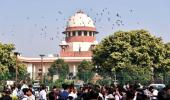
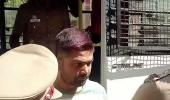




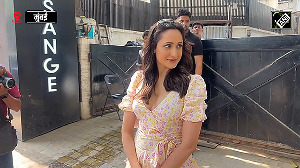
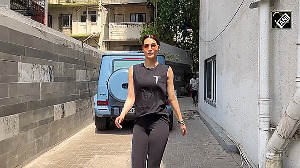
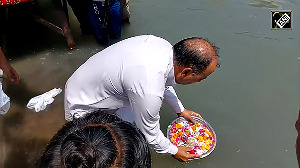
 © 2025
© 2025